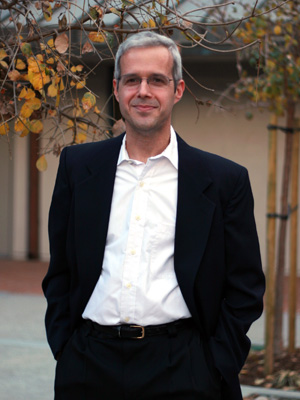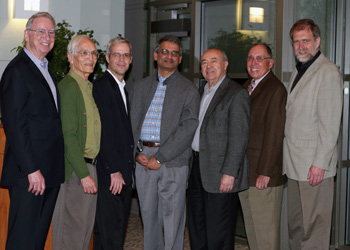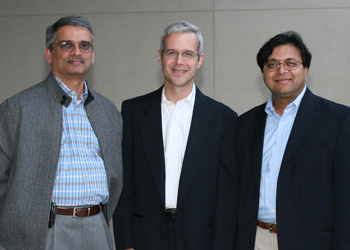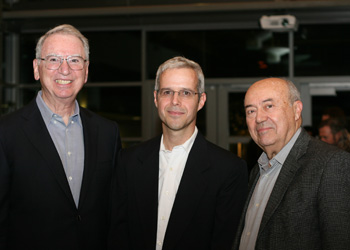Information Theorist Named to QUALCOMM Endowed Chair at UC San Diego
Appointment Coincides with Start of Weeklong International Conference at UCSD
San Diego, CA, January 29, 2007 -- The University of California, San Diego today announced that Alon Orlitsky has been appointed the first holder of the QUALCOMM Endowed Chair in Information Theory and its Applications.
|
The chair in UCSD's Jacobs School of Engineering is one of five pledged by QUALCOMM through its initial $15 million corporate commitment to the UCSD division of the California Institute for Telecommunications and Information Technology (Calit2).
"Endowed chairs make it possible for the Jacobs School to attract and retain faculty of the highest caliber, and Professor Orlitsky exemplifies this faculty excellence that makes the Jacobs School one of the top research engineering schools in the country," said Jacobs School Dean Frieder Seible, noting that Orlitsky's chair is the school's 25th to date. "He has also played an important role outside the classroom in launching an initiative within Calit2 that positions UCSD as a center of excellence in a field -- information theory -- that underpins the digital revolution."
The Information Theory and Applications (ITA) Center was launched in early 2006, with Orlitsky as its founding director. "Our goal is to study the fundamentals of information theory and extend their applications beyond traditional areas such as communications and data storage," said Orlitsky. "But as a research-and-resource center, we also reach out and bring in researchers from around the world."
|
"Information theory has transformed the world and influenced advances ranging from digital cell phone technology to direct-broadcast satellite transmission," said Dr. Irwin Mark Jacobs, a former professor of engineering at UCSD who went on to found two major U.S. companies based on principles from information theory -- Linkabit and QUALCOMM. "Professor Orlitsky's expertise and research are at the intersection of theory and its practical applications, and we hope that this endowed chair will help him continue to engage students in this seminal field while also leading the ITA Center as a proactive force in spreading awareness of the potential real-world benefits of information theory."
|
Orlitsky holds joint appointments in the Jacobs School's Electrical and Computer Engineering as well as Computer Science and Engineering departments. He joined the UCSD faculty in 1997 after working as a member of the technical staff at Bell Laboratories' Mathematical Sciences Research Center and as a quantitative analyst at the investment firm D.E. Shaw & Co. Orlitsky received B.Sc degrees in Mathematics and Electrical Engineering from Ben Gurion University in 1980 and 1981, respectively, and M.Sc. and Ph.D. degrees in Electrical Engineering from Stanford University in 1982 and 1986.
|
"UCSD has a world-class group of faculty with extensive expertise in information theory," noted Calit2's Rao, himself a former member of the governing board of the IEEE Information Theory Society. "The ITA Center is now creating a framework for research collaboration that transcends what any single investigator can achieve, and this endowed chair is a vote of confidence in Alon Orlitsky and his tenure at the helm of the first research center of its kind to harness advances in information theory for the benefit of California, the nation and the world."
Related Links
Information Theory and Applications Center
Alon Orlitsky Website
QUALCOMM Incorporated
Media Contacts
Media Contact: Doug Ramsey, 858-822-5825, dramsey@ucsd.edu





